
By Liz Baird, Chief of School and Lifelong Education, North Carolina Museum of Natural Sciences
August 30, 2016
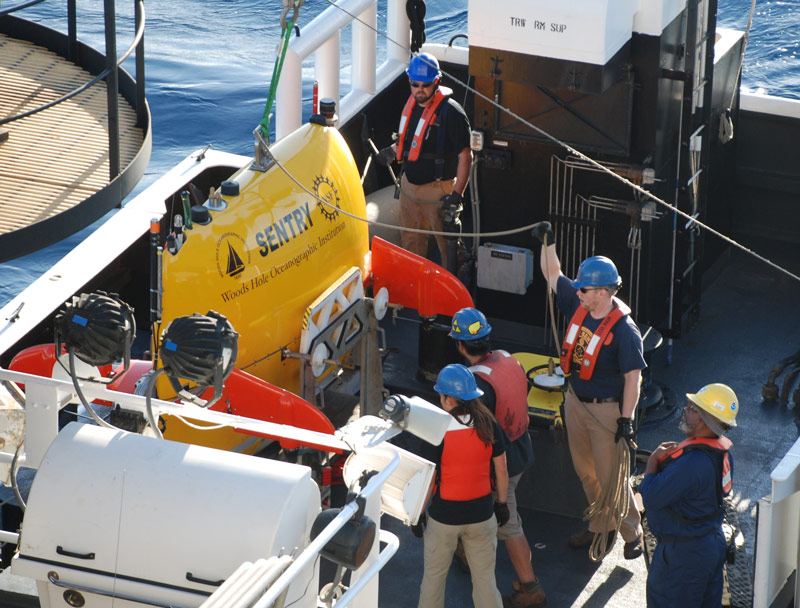
Carl (second from right) helps to prepare Sentry for deployment. Image courtesy of the Exploring Carolina Canyons expedition. Download larger version (jpg, 1.9 MB).
Have you ever wondered how people become scientists? Have you ever wondered if you could work on a research vessel? Or study the ocean? Or find a new species?
We provide some background information about the science team on the Explorers page. However, we want to give a sense of who they were before they were scientists. Stay tuned to the Mission Logs page as we feature members of the science team throughout the expedition. Next up is Carl Kaiser, AUV Program Manager.
When he was in fourth grade, Carl read “The Foundation Trilogy” by Isaac Asimov and decided he wanted to design and build spaceships. Now he jokes “I was just off by a negative sign. It turns out my vehicles go down, not up.” Carl is quick to point out that he is an engineer, not a scientist. As he says, “scientists discover what is; engineers create what isn’t yet.” Both of Carl’s parents are engineers, so he grew up surrounded by engineering. His family spent lots of time outside, hiking, camping and exploring. He went on his first camping trip was when he was just six weeks old! They didn’t have a TV until he was two, and then they only got one because babysitters wouldn’t come without one in the house. He still enjoys camping trips in the Rockies, and is occasionally able to go with his parents.
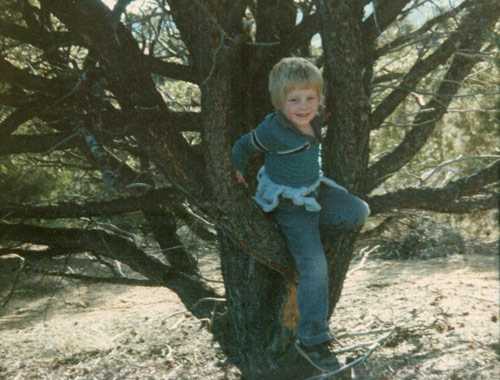
Carl climbing a tree as a child. Image courtesy of the Exploring Carolina Canyons expedition. Download larger version (jpg, 4.2 MB).
Carl was active in Boy Scouts, participating in high adventure camps and long backpacking trips. He earned his Eagle Scout ranking by creating benches for a trail in Tennessee. He liked to tinker with electronics, once accidentally setting off a model rocket igniter in the house as he tried to build a launch controller. He taught himself to code as a middle school student, as there weren’t opportunities such as FIRST Robotics when he was growing up.
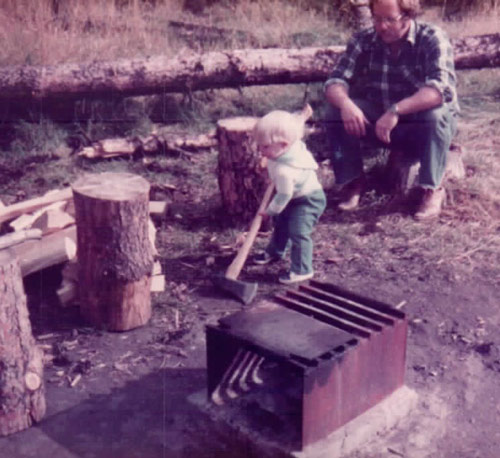
Carl learning how to engineer a campfire at a young age. Image courtesy of the Exploring Carolina Canyons expedition. Download larger version (jpg, 248 KB).
At Colorado State University, Carl studied mechanical engineering. Robotics became a focus during his last two years. He decided to continue on, receiving both his Master’s and PhD in Robotics. He studied rapid simulation design work, which allows engineers to virtually see how a proposed design might perform before they invest too much time in creating it. He enjoyed being in Colorado, and worked hard during the week and played hard skiing, climbing, hiking, and kayaking on the weekend.
Carl worked for two years with the supply chain and manufacturing group of a major electronics company in Singapore and Malaysia. Although, he soon realized he wanted to get back into cutting-edge research and field robotics. He looked for places that had cutting-edge robots that were being used in real environments, not just the lab, and found that Woods Hole Oceanographic Institution (WHOI) was one of the best in the nation. He applied for every open position, and put the word out to everyone he knew that he needed a contact at WHOI. Demonstrating the power of networks, he finally got the right contact through the gym buddy, of the godfather, of the sister, of the fiancé, of his college friend—six degrees of separation!
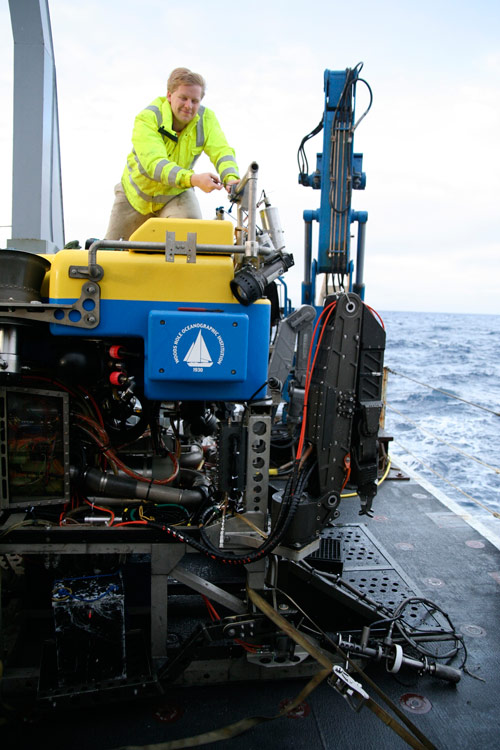
Carl, on his first cruise in 2010, works on remotely operated vehicle Jason aboard NOAA Ship Thompson. Image courtesy of the Exploring Carolina Canyons expedition. Download larger version (jpg, 3.4 MB).
After almost a year of effort, he quit his job at the electronics company and three days later flew to Washington State to get on NOAA Ship Thompson for a seven-week mission with the remotely operated vehicle (ROV) Jason. He had never worked with an ROV or been out to sea previously.
Having demonstrated his skills, he was assigned to the autonomous underwater vehicle (AUV) Sentry and began managing the group six months later. Over the years he has helped Sentry become a reliable, operable research platform that is supported by both internal and external funding.
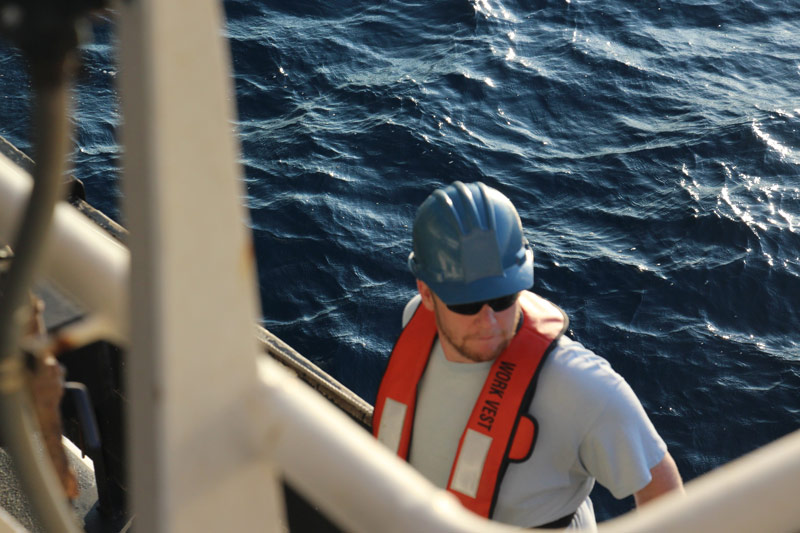
Carl on NOAA Ship Pisces. Image courtesy of the Exploring Carolina Canyons expedition. Download larger version (jpg, 8 MB).
When asked what advice he would give someone who wants to do what he does, he stressed doing everything as well as possible. “Work hard enough to get really good at what you do and maintain good grades, but then take time for fun as well. Do everything really well, just limit how much time you spend doing it. Don’t feel as if you need to take an extra class. No one expects you to do that. Just do what you have signed up for the very best you can, and remember that life is short and balance is key. Have some fun.”
Carl says working as an engineer for Sentry is really cool. He gets to travel all over the world, work with brilliant people, and gets “paid to play with robots.” Isaac Asimov would be proud.